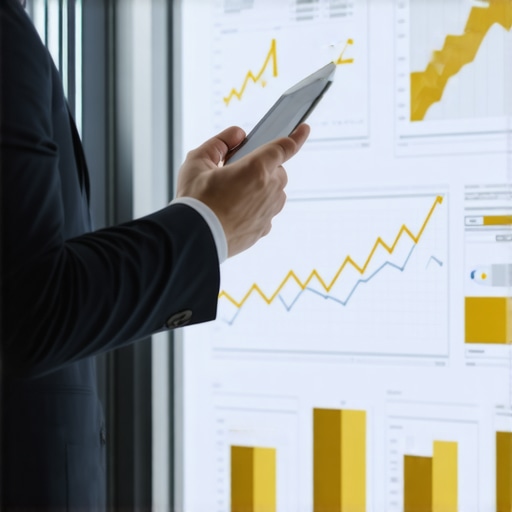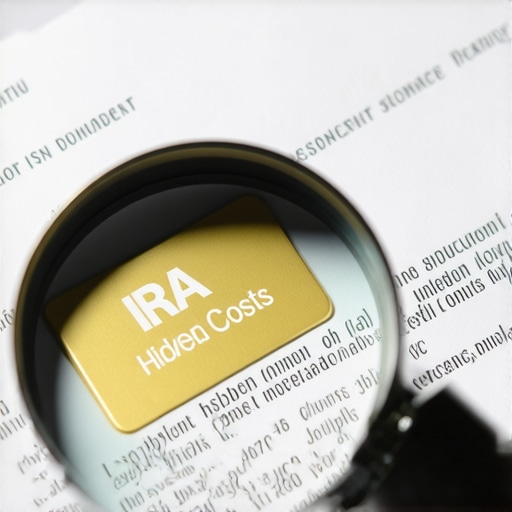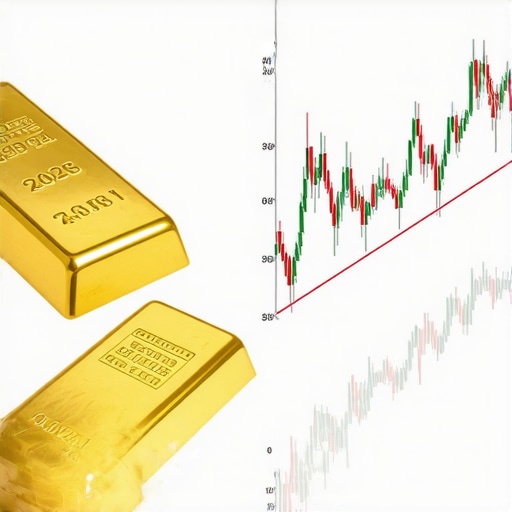Navigating the Complex Landscape of Gold Dealer Selection in 2025: An Expert Perspective
As global economic uncertainties and evolving market dynamics shape the precious metals sector, selecting a reliable gold dealer has never been more critical for investors seeking to safeguard or grow their wealth. With the surge in digital platforms and an increasing emphasis on transparency, understanding the nuanced criteria for dealer evaluation becomes a vital component of a sophisticated investment strategy.
What Are the Key Criteria for Assessing Gold Dealers in the Modern Market?
How do Supply Chain Integrity and Source Transparency Impact Dealer Credibility?
In 2025, due diligence extends beyond basic licensing; it involves scrutinizing the transparency of a dealer’s supply chain. Experts recommend verifying whether a dealer adheres to the standards set by organizations such as the London Bullion Market Association (LBMA) and whether they provide detailed provenance records. This ensures the authenticity of gold and aligns with best practices outlined in recent industry white papers.
Evaluating Price Transparency and Market Fairness
Price transparency is a cornerstone of trustworthiness. Reputable dealers provide clear, real-time pricing data, often linked to global benchmarks like the LBMA Gold Price. Analyzing how a dealer’s premiums and fees compare to market averages can reveal potential red flags or opportunities for better value, especially amid fluctuating market conditions influenced by geopolitical factors.
The Role of Digital Innovations and Cybersecurity in Dealer Selection
Modern dealers leverage blockchain technology to enhance traceability and combat counterfeit risks. Moreover, cybersecurity measures protect client data and transaction integrity. Investors are advised to scrutinize a dealer’s digital infrastructure, seeking credentials such as ISO certifications and secure payment protocols, to mitigate potential cyber threats that have escalated in recent years.
Expert Insight: How Do Market Trends Influence Dealer Reliability?
Market volatility, driven by geopolitical tensions and macroeconomic shifts, necessitates adaptive dealer evaluation. For instance, during periods of high inflation or currency devaluation, some dealers may exploit market panic by inflating premiums. Analyzing historical data and consulting authoritative sources such as this comprehensive market analysis can help investors identify resilient dealers who maintain integrity under stress.
What Are the Best Practices for Verifying Dealer Authenticity Before Purchase?
Verifying dealer credentials through industry associations, customer reviews, and regulatory bodies remains a fundamental step. Additionally, engaging with dealer reviews on platforms like the Better Business Bureau or industry-specific forums can provide insights into their reputation and service quality. Conducting due diligence with a layered approach ensures alignment with expert standards for safe, profitable gold investments.
For further insights into optimizing your gold investment strategy, explore our detailed guides on investment strategies and supply-demand analysis. If you’re eager to share your expertise or seek advanced advice, consider contributing to our community of seasoned investors, fostering a collaborative approach to mastering this complex field.”},
Leveraging Market Data and Industry Standards for Superior Dealer Evaluation
In the rapidly evolving landscape of gold investment, sophisticated investors understand that leveraging comprehensive market data and adhering to industry standards are pivotal in selecting trustworthy dealers. Beyond basic credentials, analyzing metrics such as dealer inventory levels, historical pricing patterns, and compliance with international standards like the LBMA’s Responsible Gold Guidance can significantly enhance due diligence. Consulting detailed market trend reports provides a nuanced understanding of dealer reliability amid fluctuating global conditions.
How Can Advanced Due Diligence Protect Against Counterfeit and Fraud Risks?
With counterfeit gold and digital security breaches on the rise, employing advanced verification tools becomes essential. Techniques such as blockchain-based provenance verification and third-party assay reports from accredited laboratories are at the forefront of fraud prevention. Experts advise verifying the authenticity of physical gold through independent assays and cross-referencing serial numbers with manufacturer databases. This multi-layered approach ensures that investors avoid counterfeit products, aligning with best practices outlined in recent security protocols.
The Role of Economic Indicators and Geopolitical Events in Dealer Selection
Smart investors monitor macroeconomic indicators—such as inflation rates, currency stability, and geopolitical tensions—that influence dealer stability and pricing strategies. For example, during periods of economic uncertainty, some dealers may exploit market panic by inflating premiums. Regularly consulting authoritative sources like this economic analysis helps identify resilient dealers who maintain transparency and integrity despite market turbulence.
Could integrating AI-driven analytics revolutionize dealer assessment in the gold market?
Emerging technologies, especially artificial intelligence (AI), are beginning to transform how investors evaluate dealer credibility. AI algorithms analyze vast datasets, including online reviews, transaction histories, and compliance records, to generate risk scores and predictive insights. This data-driven approach allows investors to identify red flags more efficiently and make more informed decisions. Incorporating AI tools into your due diligence process can be a game-changer, especially in volatile markets where rapid assessments are crucial. For a deeper understanding of technological innovations, explore our expert strategies for gold trading.
Sharing your insights or questions about advanced dealer evaluation techniques can foster a richer community dialogue. If you’re interested in expanding your knowledge, consider reviewing our comprehensive guides on wealth-building strategies and supply-demand insights to stay ahead in the gold investment arena.
Deciphering the Nuances of International Regulatory Compliance and Its Impact on Dealer Credibility
In 2025, understanding the intricate web of international regulations governing precious metals becomes essential for discerning investors. Dealers compliant with frameworks such as the OECD Due Diligence Guidance for Responsible Mineral Supply Chains not only enhance their credibility but also mitigate risks associated with illicit sourcing and geopolitical sanctions. Analyzing a dealer’s adherence to these standards—through documented compliance reports and third-party audits—offers a robust layer of assurance, aligning with the evolving landscape of global trade regulations.
How does the integration of ESG principles influence dealer selection?
Environmental, Social, and Governance (ESG) criteria are increasingly pivotal in evaluating dealer integrity. Dealers committed to responsible sourcing and sustainable practices often participate in initiatives like the Responsible Gold Guidance by the LBMA, which emphasizes ethical practices and environmental stewardship. Investors should scrutinize dealer disclosures on ESG metrics—such as carbon footprint reduction, fair labor practices, and community engagement—to ensure their investments support sustainable industry standards. This comprehensive approach not only aligns with global ethical expectations but also safeguards long-term asset value.
Advanced Technological Integrations in Dealer Verification: Blockchain and AI Synergies
The convergence of blockchain technology with artificial intelligence is revolutionizing dealer verification processes. Blockchain’s immutable ledger ensures transparent provenance records, reducing counterfeiting and theft risks, while AI algorithms analyze vast datasets to detect anomalies and predict potential fraud. For instance, implementing blockchain-based tracking combined with machine learning-driven risk assessments allows investors to verify the authenticity and legitimacy of gold with unprecedented accuracy. This hybrid approach exemplifies the cutting edge of due diligence, fostering trust in an increasingly digital marketplace.

What are the practical steps for integrating these advanced tools into everyday dealer evaluations?
Begin by sourcing dealers who utilize blockchain provenance records, then verify their participation in recognized industry standards such as the LBMA Responsible Gold Guidance. Next, leverage AI-powered platforms that aggregate and analyze third-party data sources—like regulatory compliance reports, customer reviews, and transaction histories—to generate comprehensive risk profiles. Regularly updating your evaluation criteria with the latest technological advancements ensures your due diligence remains robust amid evolving market complexities.
For investors eager to deepen their expertise, exploring authoritative resources like the World Gold Council’s guidelines on responsible sourcing can offer invaluable insights. Engaging with industry forums and expert seminars on technological innovations will further refine your approach, enabling you to navigate the sophisticated landscape of gold dealer evaluation effectively.
Unlocking the Secrets of Elite Dealer Verification Techniques in the Evolving Gold Market
In the dynamic landscape of 2025’s precious metals sector, discerning investors are turning to sophisticated methodologies to evaluate gold dealers. Moving beyond conventional metrics, the integration of cutting-edge technologies and comprehensive compliance checks forms the backbone of an advanced due diligence process. This approach not only ensures authenticity but also optimizes investment returns amidst unpredictable global economic shifts.
What Are the Most Effective Indicators of a Dealer’s Long-Term Credibility?
How do Geopolitical Risk Assessments and Supply Chain Resilience Affect Dealer Selection?
In today’s volatile geopolitical climate, analyzing a dealer’s geographic sourcing regions and their resilience to global disruptions reveals their capacity to maintain supply integrity. Industry reports from organizations like the World Gold Council emphasize the importance of ethical sourcing and supply chain diversification as hallmarks of credible dealers. Investors should scrutinize detailed provenance documentation and regional risk assessments to mitigate exposure to sanctions or supply chain interruptions.
Can Blockchain and AI Integration Revolutionize Due Diligence?
Absolutely. The convergence of blockchain for provenance tracking with AI-driven analytics provides an unprecedented level of transparency and predictive accuracy. Blockchain ensures tamper-proof records of gold origin, while AI algorithms analyze vast datasets—including transaction patterns, regulatory compliance, and social responsibility metrics—to flag potential red flags. This technological synergy empowers investors to make data-driven, high-confidence decisions, elevating standard due diligence to a new echelon of precision.

Illustration of blockchain and AI integration in gold supply chain verification.
How Do International Regulatory Standards Elevate Dealer Trustworthiness?
Compliance with frameworks such as the OECD Due Diligence Guidance and adherence to the LBMA Responsible Gold Guidance serve as benchmarks for dealer integrity. These standards mandate rigorous auditing, transparent reporting, and responsible sourcing practices. Experts recommend verifying dealer certifications and audit reports from recognized third-party agencies, which significantly reduce the risk of illicit sourcing and ensure alignment with global ethical standards.
Why Should ESG Principles Be Central to Dealer Evaluation?
Environmental, Social, and Governance (ESG) principles are increasingly integral to sustainable investing. Dealers committed to ESG standards participate in initiatives that promote responsible mining, carbon footprint reduction, and fair labor practices. Incorporating ESG metrics into your evaluation process not only aligns your portfolio with ethical standards but also enhances long-term value preservation by supporting industry-wide sustainability efforts.
What Practical Steps Can Investors Take to Implement These Advanced Evaluation Techniques?
Start by selecting dealers who utilize blockchain provenance tools and possess recognized ESG certifications. Next, leverage AI-powered platforms that aggregate compliance data, customer reviews, and transaction histories to generate comprehensive risk profiles. Regularly updating your evaluation criteria ensures adaptability to market shifts. Engaging with industry expert seminars and authoritative resources like the World Gold Council’s guidelines deepens your understanding of evolving standards.
For ambitious investors seeking mastery over gold dealer evaluation, embracing these technological and regulatory advancements offers a significant competitive edge. Dive into our detailed guides on wealth-building strategies and supply-demand insights to stay ahead in this complex, high-stakes market.
Expert Insights & Advanced Considerations
1. Supply Chain Transparency as a Trust Indicator
In 2025, supply chain transparency remains pivotal. Experts emphasize verifying adherence to international standards like LBMA Responsible Gold Guidance and scrutinizing provenance documentation to ensure authenticity and ethical sourcing, which are critical for long-term trust.
2. Leveraging Blockchain and AI for Due Diligence
The integration of blockchain technology with AI analytics offers unprecedented accuracy in dealer verification. These tools facilitate tamper-proof provenance tracking and predictive risk assessments, enabling investors to make more informed, confident decisions amidst market volatility.
3. ESG and Regulatory Compliance as Credibility Metrics
Environmental, Social, and Governance (ESG) criteria, coupled with adherence to international regulations such as OECD Due Diligence Guidance, serve as benchmarks for dealer integrity. Investors should prioritize dealers providing transparent ESG disclosures and independent audit reports.
4. Cybersecurity and Digital Infrastructure
With digital transactions on the rise, assessing a dealer’s cybersecurity measures—ISO certifications, secure payment protocols—is essential to safeguard assets and personal data against evolving cyber threats.
5. Market Resilience and Historical Performance
Analyzing a dealer’s ability to withstand geopolitical shifts and market shocks, supported by historical pricing and inventory stability data, can reveal their resilience and reliability during turbulent times.
Curated Expert Resources
- London Bullion Market Association (LBMA): Offers industry standards, white papers, and certification details vital for due diligence.
- World Gold Council: Provides comprehensive reports on responsible sourcing, ESG metrics, and market trends essential for advanced investors.
- OECD Due Diligence Guidance: An authoritative resource outlining international compliance standards for responsible mineral supply chains.
- Blockchain in Gold Supply Chains: Industry publications and case studies demonstrating blockchain applications for transparency and fraud prevention.
Final Expert Perspective
As we navigate 2025, mastering advanced evaluation techniques for gold dealers—integrating supply chain transparency, cutting-edge technology, and compliance standards—becomes indispensable. These insights not only elevate your due diligence but also safeguard your investments against emerging risks. For those committed to excellence in gold investing, continual engagement with authoritative resources and industry innovations is key—embrace these strategies, and position yourself at the forefront of the evolving gold market.










